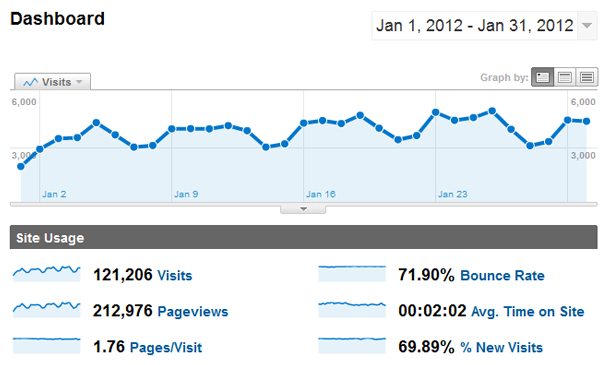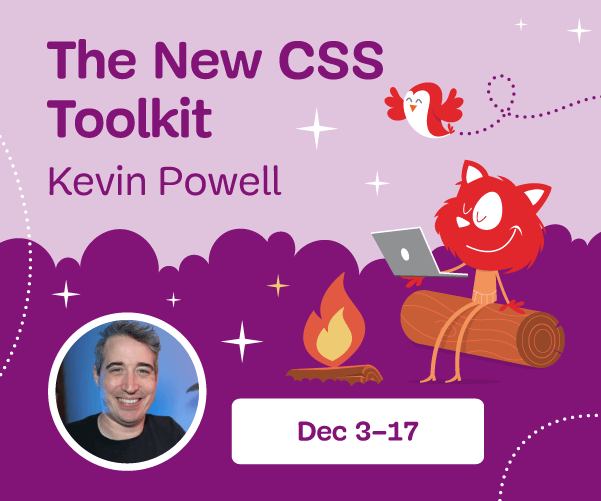Smashing Special: What’s Going On In The WordPress Economy? - Part 2
This article is part of our series of Smashing Specials — extended articles and studies dedicated to a specific topic. The special looks at the current state of the WordPress economy, exploring WP MultiSite, selling software as a service, teaching, and the future.
WordPress Multisite
The Multisite Network

Running a complex multisite network is not an easy job (image CC license Ethan Hein).
We’ve all heard of WordPress.com, which runs of course on WordPress, but it’s not the only large WordPress network in the world. Edublogs runs more than a million education blogs using WordPress multisite. The network was started by James Farmer, who at the time lectured on online education design. He was looking for ways to provide blogs to his students. After playing around with Manilla and Drupal, “coming across the earliest builds of WPMU was a blissful experience.”
Further Reading on SmashingMag: Link
- Random Redirection In WordPress
- WordPress Essentials: How To Create A WordPress Plugin
- Guide To WordPress Coding Standards
- A Process For Professional WordPress Development
I asked James about the trajectory of Edublogs:
It’s strong, not hockey stick strong, but going well, improving and growing all the time, and set for a bright future with the ever increasing adoption of these technologies in schools.We’re never going to be the fashionable kid in the playground (we’re no Edmodo) but that’s cool—as long as we gradually progress towards world domination, I’ll be happy.
And it’s run these days by two of the best folks you’ll ever meet—Ronnie [Burt] & Sue [Waters]—which certainly helps.
While there are plenty of smaller networks around running on WordPress Multisite, there aren’t many of this size. I asked him how difficult it has been to run a network of over a million blogs.
Jolly good, but f**king hard.The database architecture wasn’t the real problem—we cracked that fairly on with Multi DB—but the servers, the configs, and finding the staff to get that right was an utter nightmare.
One lesson when it comes to SysAdmin-ing—you get what you pay for, there is no cheap solution. It’s like saying ‘I’d prefer the cheap heart surgeon’, you just shouldn’t do it.
As for advantages, there are many. It’s the best publishing platform on the Web, so what more could you ask for?
Writing
Blogging

Blogging for fun and profit (image CC license Search Engine People Blog).
Blogging is what WordPress was made for, so it’s not surprising to see it on a list of WordPress businesses. But what I’m interested in is not whether someone can make money out of a blog, but whether a blog about WordPress forms part of the WordPress Economy. There are a few of them around, with WPBeginner WPMU.org, WPTavern, and WPCandy, all generating a significant amount of traffic. People want to learn about WordPress, and a WordPress blog is often a good place to get started.
WPLift is run by Oli Dale, a UK-based Web designer. While other blogs were focusing on news or tips, Oli wanted to create a WordPress blog that focused on big roundup posts and in-depth tutorials. He already had experience growing a blog to millions of pageviews a month, so he decided to put this experience to work creating WPLift.
Ever since launching, WPLift has grown almost every month. What’s interesting is that Oli publishes monthly stats round-ups and income reports, so that visitors can see how much income has been generated through the blog.

Oli’s WPLift stats for January
I asked Oli where he gets most of his income from:
Most of the website’s revenue comes from affiliate programs, a small amount from display advertising (which is handled by BuySellAds), and I also earn an amount from my own WordPress products which I link to in the sidebar.The affiliate income is earned by me reviewing certain plugins or themes and using an affiliate link to link to the products. I also like to do roundup posts where I will group together certain types of themes or plugins—these always do well and also help people in their search.
Like many WordPress blogs, WPLift fits into Oli’s overall business. He also runs Kooc Media, sells a number of commercial plugins, and is about to launch a theme shop—Theme Furnace. WPLift gives him a readymade platform for launching new products and services.
Publishing
So many books, so little time (image CC license ).
Books about WordPress are being published all the time. A quick glance at the results for WordPress on Amazon provides an indication of just how lucrative the WordPress publishing industry is. And of course, this doesn’t include all of the PDFs and eBooks doing the rounds on the internet. Lisa Sabin-Wilson has been in the WordPress publishing business since 2006, when she wrote WordPress for Dummies (released in 2007). It continues to sell well today, even in print version, despite the increase in eReadership. Some readers even buy both!

(image CC license Mar.tin).
WordPress publishing is a saturated market, but Lisa believes that there is still scope within it, especially as self-publishing becomes easier.
There are a lot of people out there with expertise in the WordPress world on various different topics from themes, plugins, security, hosting, consulting, publishing, etc., that I think we will start seeing more and more self-published short books on targeted topics, rather than wide-ranging topics. My books, for instance, have a pretty wide range and cover everything from an introduction to the software to theming and plugin development, but I think short e-books on targeted topics is something that will start emerging.
In 2007, the “For Dummies” publisher brought out a book focussing on just a single plugin—”BuddyPress for Dummies”. However, the costs involved were too high to justify continued support for a book about a plugin which at the time didn’t have a large community (maybe we’ll see this change in future?). Still, self-published short books which have considerably lower costs could potentially be successful and fill a need in the community.
Copywriting & Documentation

Lonely writer, stuck in a garrett (image CC license miss mass).
As the number of WordPress businesses grows, the need for accurate Web content and documentation grows with it. When a WordPress business uses a copywriter who isn’t well-versed in WordPress, it shows. And this can result in inaccuracies which lead to confusion on the part of the reader, as well as additional editing time on the part of the business owner. This was a problem that I wanted to solve when I launched Words for WP last year. Since it’s the only WordPress copywriting agency around, I figured I had better ask myself some questions about it. Here’s what I said:
It’s rare that I meet a developer who really loves to write documentation. I mean, yeah, they exist, but they are few and far between. Coders want to write code, and documentation takes up precious coding time. With the massive scale of WordPress businesses, I knew that there would be scope for someone who writes copy and documentation just about WordPress, and there really is.
Since launching in November last year, Words for WP has written for a number of established businesses, as well as a number of startups and smaller companies.
What I’ve found that there is a real need for people who can take a product and make its uses crystal clear to end-users. The people writing code are often so immersed in it that they find it difficult to communicate the very basics, which is what users need. I may not always understand the code, but I can always make someone understand what a piece of code does—and that’s really the job of a good documentation writer.
This sort of approach is by no means a saturated market—at this moment in time there is me and… well, just me. This means that there is scope for similar services to be set up and to make sure that WordPress documentation is always excellent.
Software As A Service (SAAS)
Niche Website Builder

Find your niche, own it (image CC license Amaury Henderick)
In my last article that I wrote for Smashing Magazine, I talked a lot about the rise of the niche. Happytables is a restaurant website builder that is out to dominate the restaurant website niche. Unlike a theme shop which may sell specific niche themes, happytables is a complete Web app built using WordPress. Restaurant owners go to the happytables website, sign up, fill in their details and they have a complete website for their restaurant. They don’t write code, edit CSS, or install WordPress; they don’t even know that they’re using WordPress.
I asked Noel Tock, the brains behind happytables, why he decided to target restaurant websites:
Despite always having a low budget, restaurants actually have complex website requirements when it comes down to it. Not only is there food management & events, but an entire slew of smaller bits (i.e. opening times, payment types accepted, location, etc.). On top of that, the competition for local search engine rankings can get tough quickly, so there’s work to be done there too. To top it off, restaurant owners aren’t always the most tech-savvy, so you need a really intuitive user interface.
What happytables does is cut out the middle man. They are targeted directly at people with no Web experience, and focus exclusively on independent restaurant owners. This means that the audience is largely offline, isn’t tech savvy and wants an easy, seamless experience. This gives happytables access to an untapped market, with potential customers that would have no idea what a theme shop even is. At the same time, they deal directly with business owners, giving them frontline experience of what people in the industry need.
Targeting this offline market is an excellent approach as it helps to get offline people online in an approachable manner. I asked Noel if there are other niches that he thinks are worth targeting.
In my opinion, the markets worth targeting have two traits in common: 1) Their business doesn’t revolve around the internet (web designers, etc.), and: 2) Their business has a varying level of special requirements that aren’t easily solved by generic themes or popular plug-ins. Churches, Doctors, Sports Clubs (utilizing BuddyPress), and many others are all great examples of markets that fit these requirements.
WordPress Management

Many websites make light work (image CC license midlander1231)
When WordPress officially got multisite mushed up inside it, many designers and developers started hosting their clients’ websites on a network, rather than as standalone websites. This use of Multisite may streamline some processes, but it doesn’t always effectively manage client websites (they may need to use different versions of WordPress for their setup, different plugin versions for compatibility, etc.). Enter ManageWP.
ManageWP was devised by Serbian plugin developer and consultant Vladimir Prelovac. Vladimir started out doing consultancy but was frustrated that the business model wasn’t scalable—he’d only be able to help a handful of clients without being able to expand his business. The SaaS model is scalable and lets Vladimir help millions of WordPress users. At the time, Vladimir saw that there was a need for a service that helped WordPress users manage all of their websites. He now dedicates all of his time to ManageWP.
Part of the ethos behind ManageWP is combining lots of different services into one place. By having backup, SEO, deployment, debugging and troubleshooting tools all in one place, the service aims to provide everything that a WordPress user needs.
I asked Vladimir how ManageWP has grown since its launch:
ManageWP has reached and exceeded my expectations! We just recently hit the break-even point during our pre-order period. Given that we have reached over 17,000 users who are managing nearly 100,000 websites with ManageWP—without spending any money on advertising—we are confident that this growth will continue. That’s a sign of demand, and it is also a sign that we are providing a service that our users find genuinely useful and worth paying for. That makes me very happy! It makes all the hard work and long hours worth it.
Currently Vladimir is looking to the future, to see how he can integrate more functionality and third-party services into ManageWP.
Teaching

(image CC license Orange42)
As long as there are people using WordPress, there will be people who need to learn about it. This leaves plenty of scope for WordPress training and teaching courses. For example, Interconnect/IT offers WordPress training courses, and they’re not the only ones. A hands-on approach to learning WordPress can be extremely productive, which means there are lots of possibilities for teaching.
Last year saw the launch of the first college course dedicated to WordPress. It was taught at Clark College by Lorelle VanVossen. Here’s what Robert Hughes, department head of Computer Technology at Clark College, had to say about it:
Offering a general overview WordPress class in Winter and Spring is a bit of an experiment. WordPress’ democratic entry point for Web publishing is of special interest to us. We are investigating the option of seeing how WordPress could serve as a foundational platform for students to explore Web careers as well as how it can be integrated into our current Web programming and Web design opportunities. A mission of the college is to respond to workforce needs, particularly in regards to high-demand workforce needs and technology training. WordPress skills, knowledge and experience is an expectation for those hiring for a wide range of Web-related positions. Lorelle’s class is one way to begin investigating how this could occur.
The course at Clark College is a four-credit course, introducing students to the basics of both WordPress.com and WordPress itself. The goal of the course is for the students to be able to manage and maintain a full WordPress website. The course is now about half-way through and students are working on a final class project. In groups of 3-4 they have to create a full business website within the restraints of a free WordPress.com blog. This challenges them to learn the basics of woking with clients, how to prepare and develop content, design elements, social media integration, and website organization and structure. Not a single student has dropped out.
I asked Lorelle about demand for WordPress courses:
There are three types of WordPress courses and trainings that are most in demand; the first two I specialize in. The first is Web publishing, understanding Web writing and multimedia publishing in WordPress. This is critical to marketing, communications, journalism, writers, advertisers, social media, and all the jobs that require Web writing skills. The second is design, literally painting on WordPress, working on WordPress Themes, design, development—where design meets code.The third is programming. The need to understand how WordPress works under the hood in order to provide WordPress Theme customization and expanded capabilities; WordPress Plugins, APIs, and extending WordPress into automation and integration within existing systems.
This makes teaching WordPress big business. There are lots of people out there just itching to learn:
WordPress today is what Microsoft Word and Photoshop were to the businesses of yesterday. With more than 25% of all websites in the world built upon WordPress, businesses and college students are desperate to learn how WordPress works, and how to improve their WordPress website—as well as how to get out on the social Web with WordPress.
The Future

Trekking in to the wild unknown (image CC license Himalayan Trails).
The WordPress Economy is thriving but will it continue to do so? How will things change over the coming years? I asked some of my interviewees what their predictions are for the future:
Matt Mullenweg
I think the next big opportunity is around agencies and consulting—there will be five to six companies as large as Automattic, just providing high-end consulting and services to the large customers who are adopting WordPress en masse.
Mike Little
I think it can only go from strength to strength. Like any new economy, there will be many who fall by the wayside. But equally, the opportunities are there for many more to take their place and succeed.
Jason Cohen
I don't see any slowing down in WordPress's growth. Of course everything slows eventually—IBM, Microsoft, Google, Apple, none of them win everything forever, so someday it will slow down. But that day isn't in sight, which means it's far off. Also when those juggernauts slow down, the ecosystem doesn't vanish. There's still 1,000x more VB developers than Rails developers, and definitely 1,000x the money made selling tools to VB developers. In that sense, I believe for many years to come it will thrive and grow, with only more opportunities for making money in all sorts of ways—consulting, themes, plugins, tools, hosting, acceleration, analysis, monitoring, SEO, and anything else that you do with websites!
Lorelle vanFossen
I see an ever growing need for APIs, integrating third-party social media and mobile apps with WordPress. Businesses need to integrate their retail process into their websites. Current eCommerce WordPress plugins are lacking in so many areas, so there is a huge market for anyone ready to invest in creating the next generation: flexible and accessible ecommerce WordPress plugin. Businesses need customers to control their purchases thoroughly, automate the entire process as much as possible, and have it hook right into their processing, inventory, ordering, shipping, and customer service departments. Mass marketers need to integrate email marketing, subscriptions, and push-and-pull notifications into their websites—if it can be done in person, the theory is that it can be done on the web and/or through mobile devices, so there is a huge market for expanding WordPress integration into those areas.
Dave Coveney
The big potential areas in WordPress will most likely be (at least from my perspective):
- Increased Intranet usage in small businesses.
- Potential Intranet usage in larger businesses if workflow and user rights handling get improved (it's too simplistic right now).
- The development of some kind of partner network or alliance, where those implementing the system have free access to best-of-breed sales, training and marketing materials, along with more say on the features and ongoing development of WordPress.
- Probably some kind of WordPress.com/.org marketplace—I just sense that Automattic and the WordPress Foundation must be itching to do this, and Matt's certainly started the process before now.
JR Farr
As far as the WordPress economy, the future is bright and the potential is even bigger. At the time of this post, I'm sure WordPress is close to powering 16% of the websites using a CMS. To me that means the entire WP ecosystem is going to open up, with even more opportunities this year. New users adopting the platform will be looking for a customized solution within WordPress for their niche.
Chris Coyier
I do think the community and market around WordPress will continue to grow for a long time. WordPress is a safe bet. Think about Facebook. I think Facebook is great, but it's risky. They could do something stupid and people would leave in droves. So if you built your business on top of that, you'd be in trouble. That's not going to happen to WordPress. It's open source. People install it themselves. Even in the unlikely even that WordPress (the project) jumps the shark and people use it less, there will still be an enormous install base of it, and the community will keep a version of it they like alive.
Lisa Sabin-Wilson
My biggest prediction for 2012 when it comes to making a buck with WordPress is In-Dashboard marketplaces. We're seeing it already with the JetPack plugin from Automattic that gives you an in-Dashboard app store (for lack of a better phrase) for the different plugins that they offer. Right now, the JetPack plugins are free ones, but I think we'll see that change in the future with the offering of paid plugins that you can purchase and activate right inside your Dashboard. You'll start seeing this with some of the popular plugins and theme providers out there as well—and with some of them, they are already starting. Gravity Forms has started making their AddOns available in-Dashboard (under the Add-Ons menu items for the Gravity Forms plugin)—you can see what is available, and as long as you have a license, you can install and activate their AddOns directly from your Dashboard. The more people I've talked to—commercial plugin and theme providers—the more I am hearing that these companies are moving towards the provision of products from within the Dashboard, making it easier for users to learn about, purchase, install and activate products directly from their Dashboard—removing the process of downloading, uploading and then activating, which is nice. I do hope it doesn't make our Dashboards cluttered and messy, though—I have to hope that the providers of these products will keep it classy!
Conclusion

All good things come to an end (image CC license Ksionic).
That’s just a few of the established and emerging businesses who are making their living out of WordPress. As I’ve written this article, I’ve thought of countless more businesses and countless more approaches. WordPress is driving innovation forward, and people are constantly taking it in new and exciting directions. A few years back it would have been difficult to imagine the types of SaaS businesses there are now, or the booming WordPress theme market.
To finish, here’s a quote from Lorelle vanFossen, one of WordPress’ strongest advocates, who has been around since the beginning:
I’m so blessed and lucky that I get to live in the world of WordPress. I look around at the New York Times, CNN, 10 Downing Street, Spotify, Network Solutions, the US and other government offices, museums, galleries, convention centers, news agencies, universities, rock stars, entertainers, non-profits, charities, restaurants, visitor’s bureaus… all the different kinds and types of individuals and businesses using WordPress, and I see brilliant minds and creative spirits unleashed. Anything is possible. Truly.
I hope you’ve found this article as inspiring to read as I have writing it. Thanks to everyone who contributed their knowledge!
Do you make your living from WordPress, or see yourself as part of the WordPress economy? What do you love about it, or hate about it? What do you think the future is?
Smashing Special: A Two-Part Series
Due to the length of the series, it was split into two parts:
- Part 1: What’s Going On In The WordPress Economy?
- Part 2: What’s Going On In The WordPress Economy?





 Agent Ready is the new Headless
Agent Ready is the new Headless
 SurveyJS: White-Label Survey Solution for Your JS App
SurveyJS: White-Label Survey Solution for Your JS App


